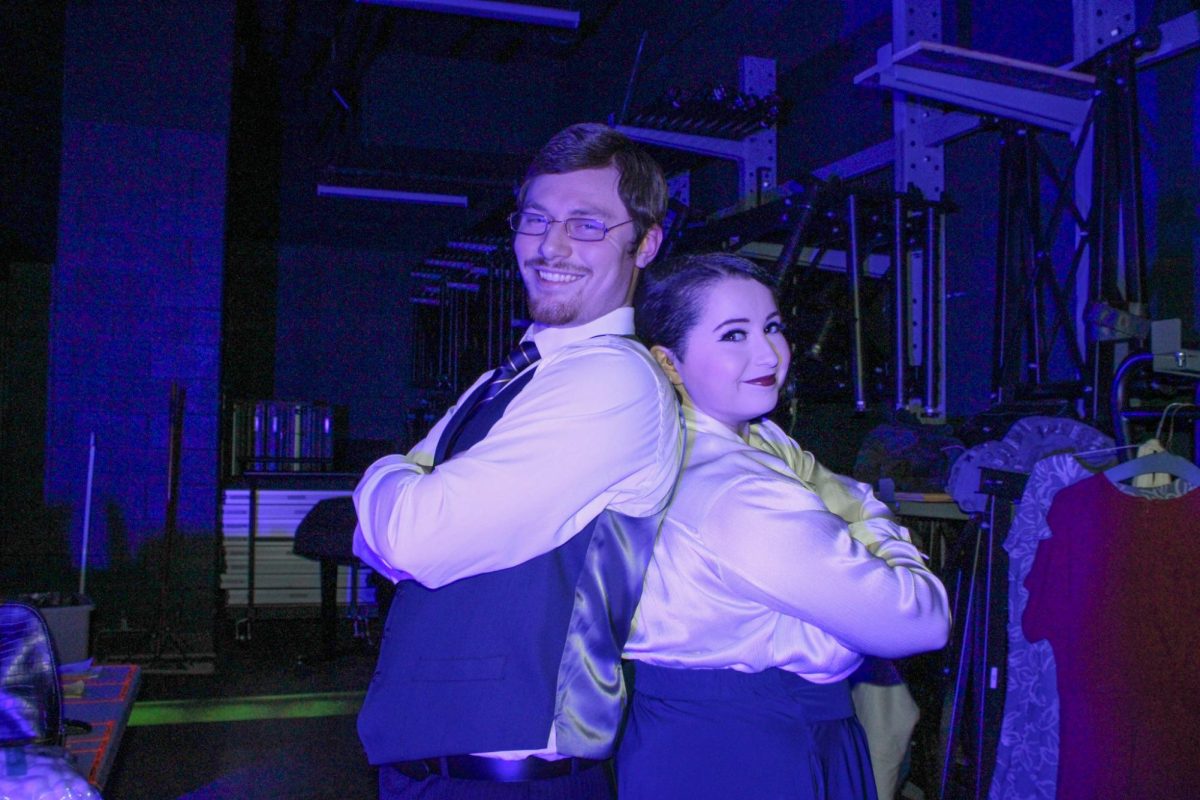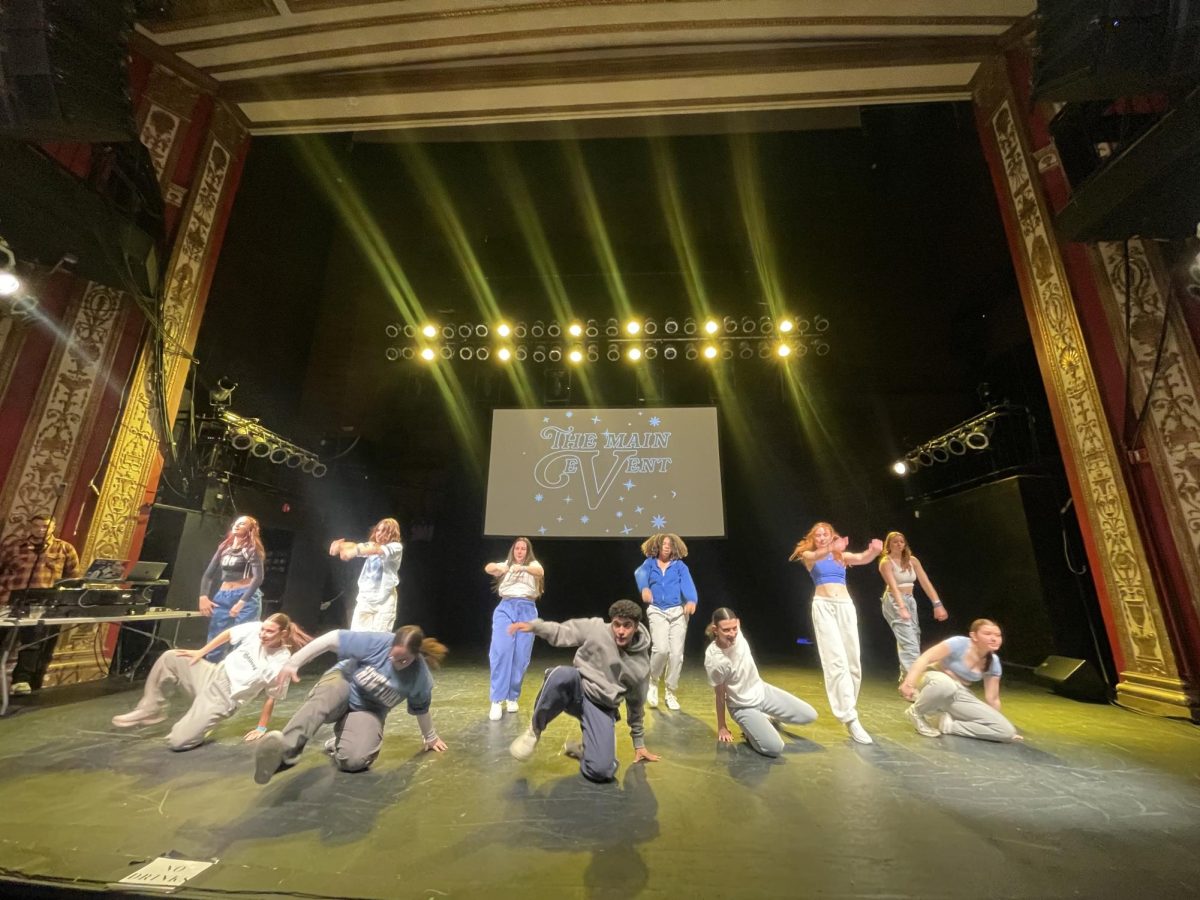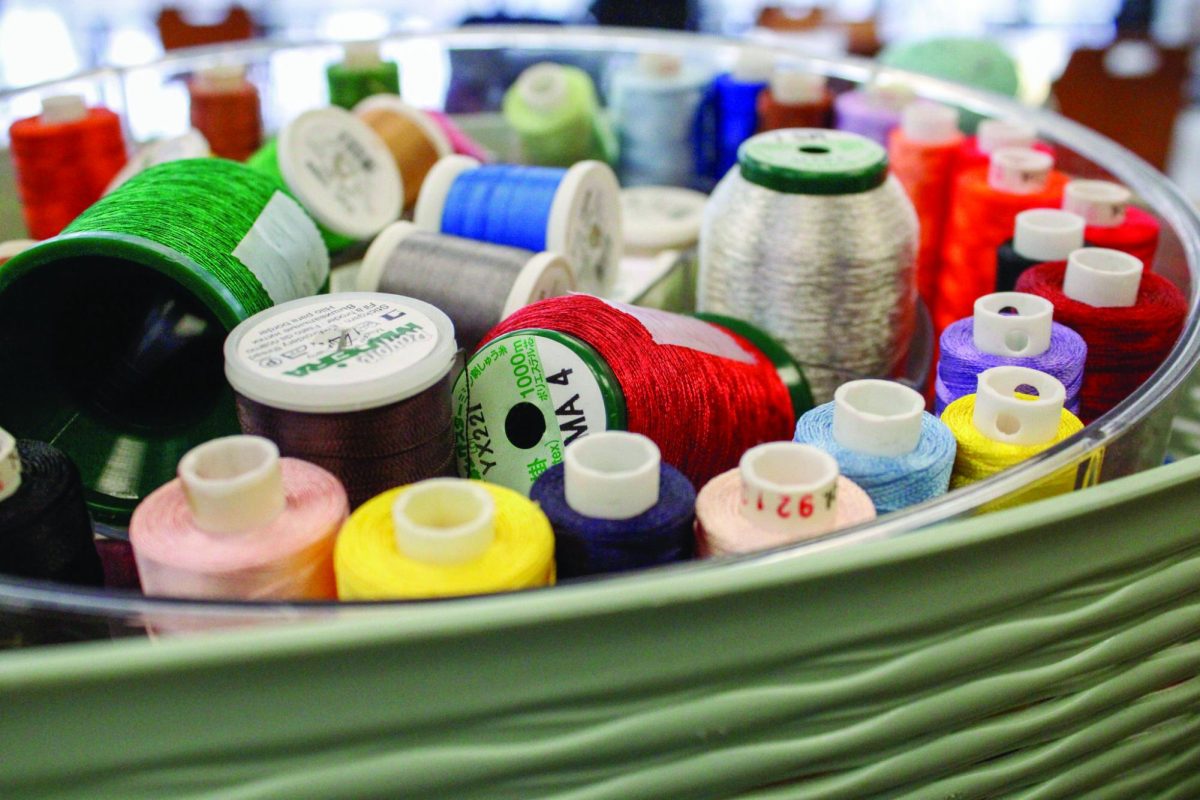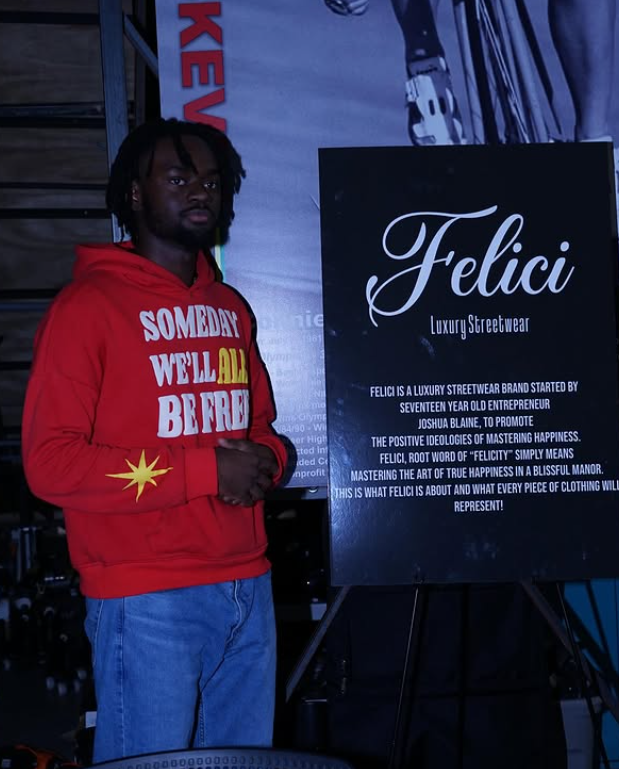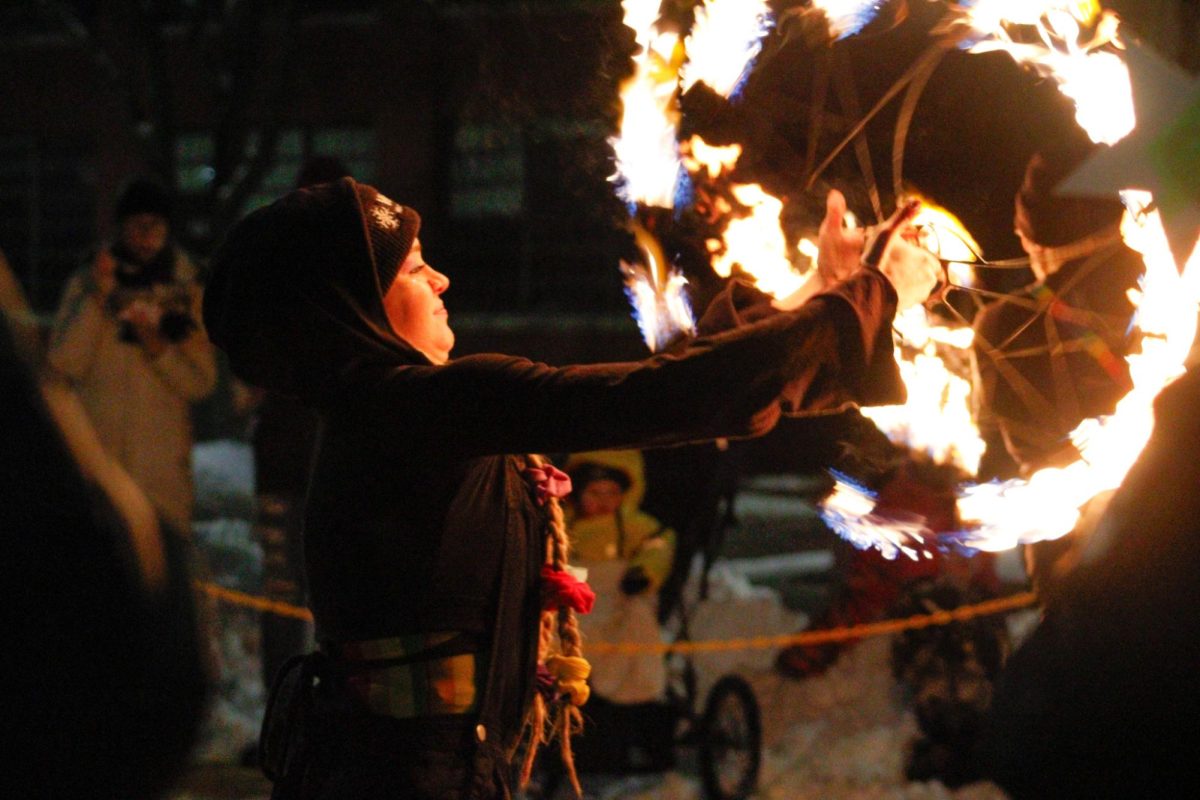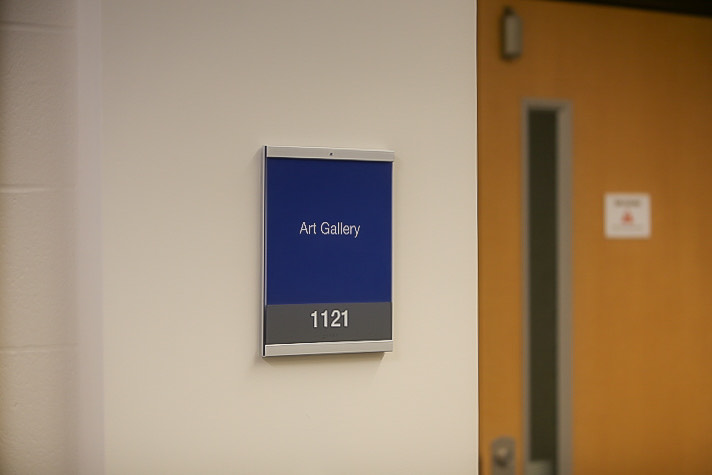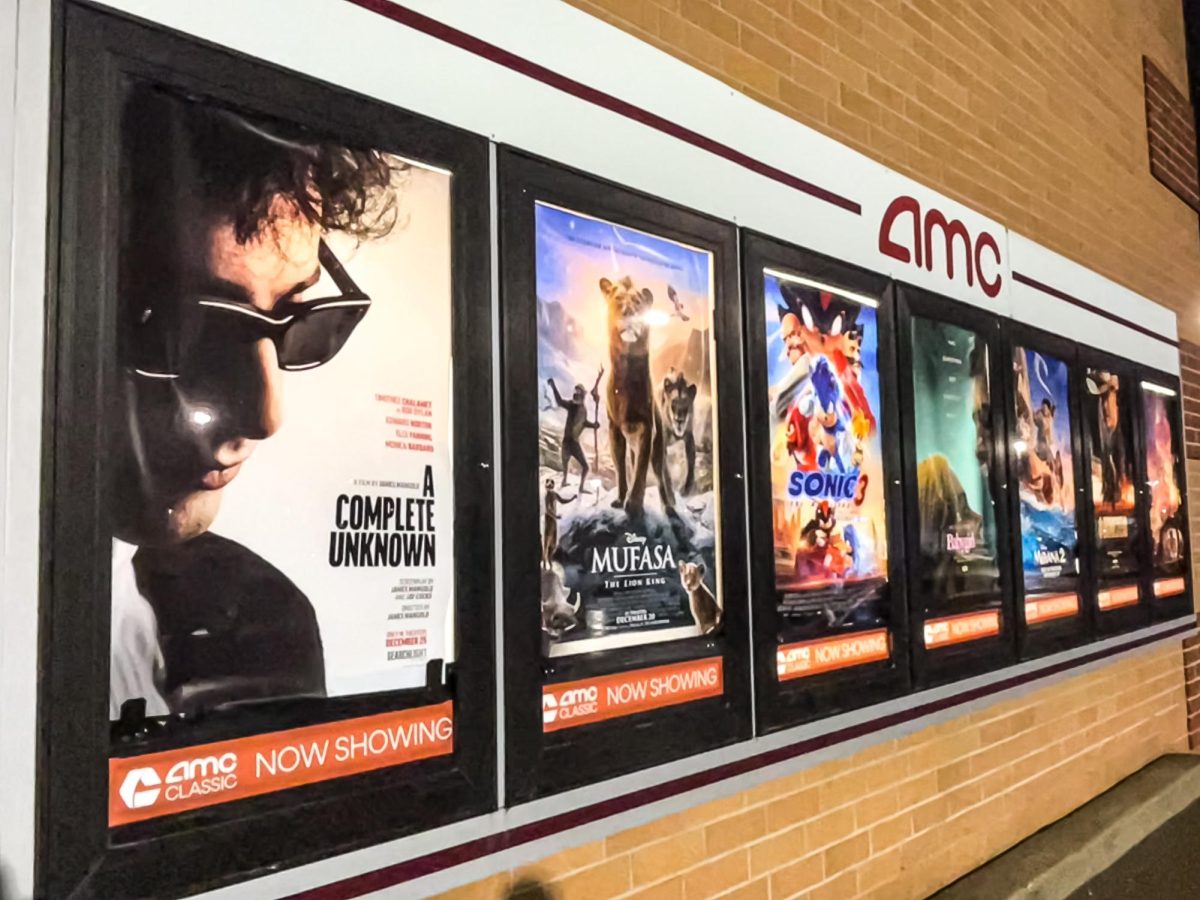Grand Valley State University theatre students showcased their talents and gained valuable stage experiences during the Performance Studio Series (PS Series) productions of “Radium Girls” and “Tracks.” The student-produced shows took place from Jan. 24 to 26 in the Linn Maxwell Keller Black Box Theatre at the Thomas J. and Marcia J. Haas Center for the Performing Arts.
The PS Series opens creative opportunities for students, giving them the space to make choices in production, directing, casting and more.
“Radium Girls,” written by D.W. Gregory and directed by Hannah Cooke, tells the true story of female factory workers in the 1920s that painted glow-in-the-dark clock dials for military watches. The workers experienced drastic health consequences as a result of ingesting radium during their workdays.
“Tracks,” written by Peter Tarsi and directed by Molly Fenn, is set in a purgatory-esque subway station where those that have died meet to reveal their deepest fears and vulnerabilities.
“For all of us, it’s really just about experience,” Cooke said. “That’s just something that our department tries to highlight and (they also) give us opportunities for experiencing actual real-life work that we could be doing.”
Cooke initially pitched her one-act production to the department at the beginning of January 2023 to the theatre faculty. After its acceptance into the PS series, Cooke dedicated her time and energy to bring “Radium Girls” to the stage. Similarly, Fenn said she had been working to bring “Tracks” to the series for over a year.
“This process was long, but so rewarding in the end,” Fenn said. “I learned how to lead and collaborate with a group of different people.”
The productions were created with minimal faculty assistance. The productions were made up of groups of students that helped produce the shows alongside the two student-directors and writers. “Radium Girls” had a cast of 10 people, including three understudies and swings. “Tracks” featured a similarly sized cast. Separate teams for sound, light and costume designers were also a vital part of the show process.
Both teams had rigorous rehearsal schedules in order to ensure the cast was ready for showtime, with daily meetings from 6 to 9 p.m. every weekday since auditions, which were several months ago. Since the shows would be running side-by-side, Cooke and Fenn devised a schedule during pre-production that would allow both teams to have equal theatre access for rehearsal time.
“We really worked together on these rehearsals to make it all seam together,” Cooke said.
In addition, Fenn said students with less experience shouldn’t be discouraged from participating in the PS series. Fenn said it is a great opportunity for all theatre enthusiasts.
“It (the PS Series) gives students the opportunity to be first-time stage managers, costume designers, directors and actors,” Fenn said. “It is such a hands-on experience of what it’s like to run a show.”
To direct in the PS Series students must first complete THE 365– Directing I and be approve by faculty.




